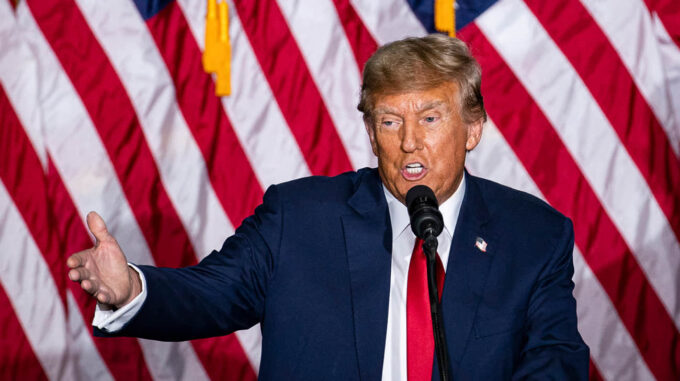Donald Trump Repeats: Crimea Will Ultimately Remain Under Russian Control

Former U.S. President and current presidential candidate Donald Trump has once again attracted global attention with his ambiguous statements regarding the Ukraine-Russia conflict and the fate of Crimea. In an interview with the reputable publication The Times, which he gave on April 22 and was published on April 25, Trump expressed his views indicating an unwavering position on our peninsula. According to him, the primary reason for military escalation is Ukraine's desire to join NATO, which, in the former White House chief’s opinion, triggered the conflict. Trump did not hide his criticism of Ukraine and its Euro-Atlantic course. "I think this war started precisely because Ukraine began talking about joining NATO. That was a push for Russia," he emphasized. At the same time, the former president underscored that he considers Crimea, annexed by Russia in 2014, to essentially remain under Russian control. "Crimea remains with Russia," Trump explicitly stated. This stance appears to echo long-standing Russian narratives that have been voiced both in the Kremlin and in Russian official circles. Earlier, commenting on the possibility of Ukraine acquiring American Patriot missile systems to defend its sky from Russian aggression, Trump hinted that Ukrainian actions are a provoked step. This is how he describes the events that provoked the war — suggesting a connection to Kyiv and Washington simultaneously. Moreover, the former president praised his ability to influence European countries, pushing them to increase defense spending. “I achieved this, and now Europe is spending more on security than ever before,” he noted. Trump also mentioned that his second term as president feels significantly more comfortable and less restricted for him. “The last time, I was fighting for survival; now — for the world,” he said. The background of this criticism and these statements is quite complex. Prior to this, media reports indicated that the Trump administration allegedly provided Ukraine with a one-page document in Paris concerning possible options for peaceful settlement of the conflict. According to sources, this document suggested recognizing Russia’s control over Crimea and easing sanctions against Moscow. Meanwhile, officials in Kyiv stated that the American proposals were supplemented with new ideas and that confusion arose due to different documents and consultations with Washington. On the other hand, Ukrainian President Volodymyr Zelensky called for consideration of the disclosed proposals and indicated the possible existence of alternative plans. On April 24, Zelensky announced that the U.S. reportedly proposed its strategy regarding Ukrainian territories during negotiations in London. However, he said, another “paper” appeared later, complicating understanding of the actual course for resolving the conflict. The details of these documents and the internal diplomatic game remain shrouded in secrecy. Reports from reputable British media, including The Telegraph, highlight a new document — a so-called “peace plan,” which sources say not only envisages the potential lifting of some sanctions on Moscow but also commits Ukraine to seek official recognition of Russia’s occupation of the peninsula. This has caused considerable public resonance and is actively discussed within Ukrainian political circles, as such a scenario could drastically alter the geopolitical situation, effectively cementing Russian gains. Thus, the current situation around the Ukraine-Russia settlement remains very tense and ambiguous. Domestic politicians, international players, and experts worldwide continue analyzing possible scenarios and their likelihood. Trump, for his part, maintains his stance — that Crimea will remain with Russia, and that Ukraine itself provoked the war. This adds another layer of contradiction into the complex and multifaceted diplomatic game, where each side strives to protect its interests. Overall, the prospects for the development of the conflict and possible compromises remain uncertain. At the same time, Ukrainian authorities and the international community continue to seek justice and protection of Ukrainian sovereignty and territorial integrity, despite the words of some politicians, which increasingly seem pessimistic about Crimea’s future and the status of occupied territories.

